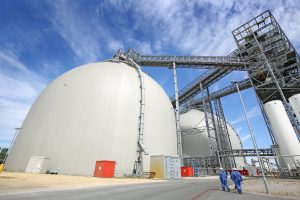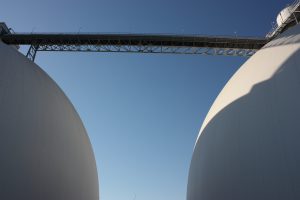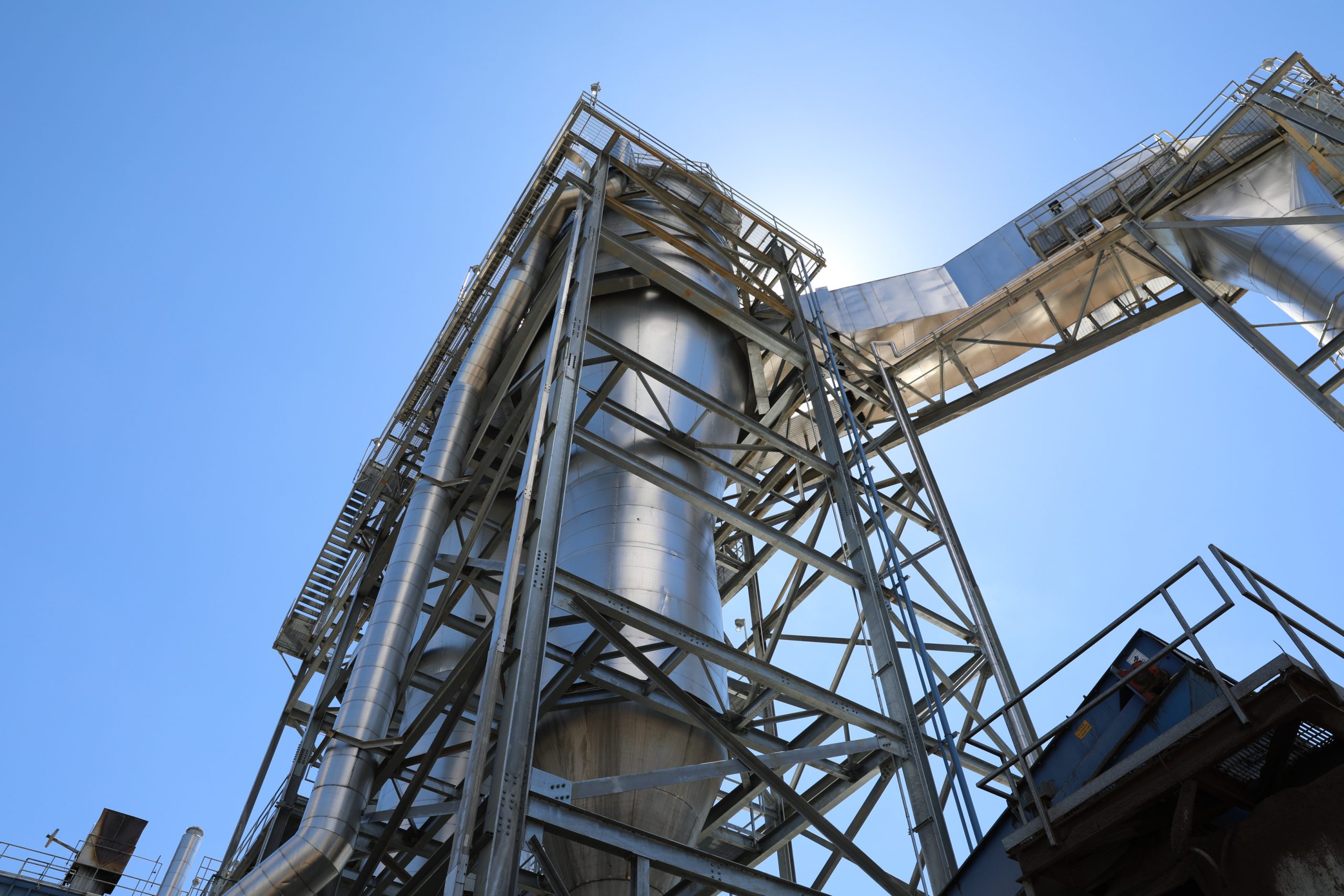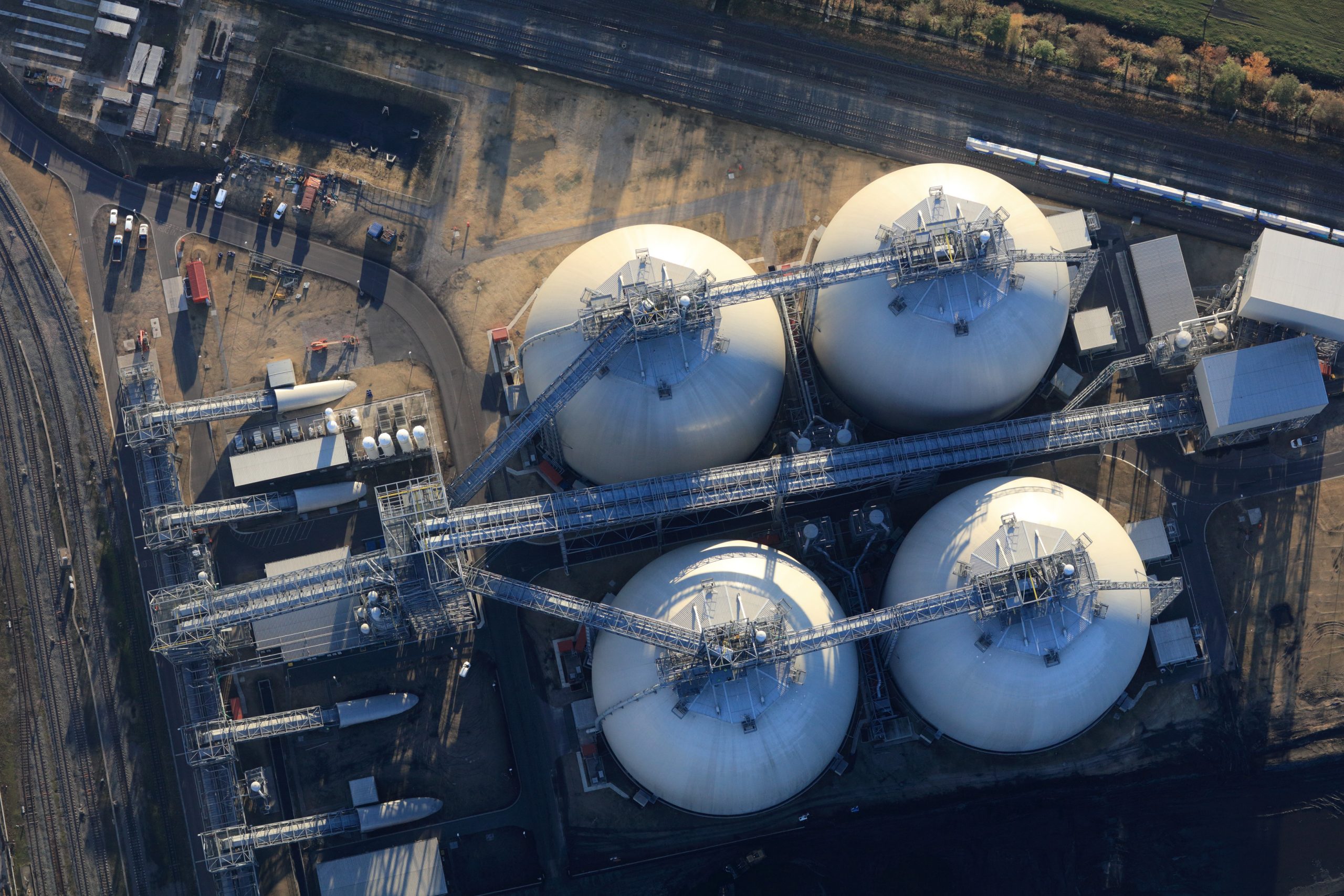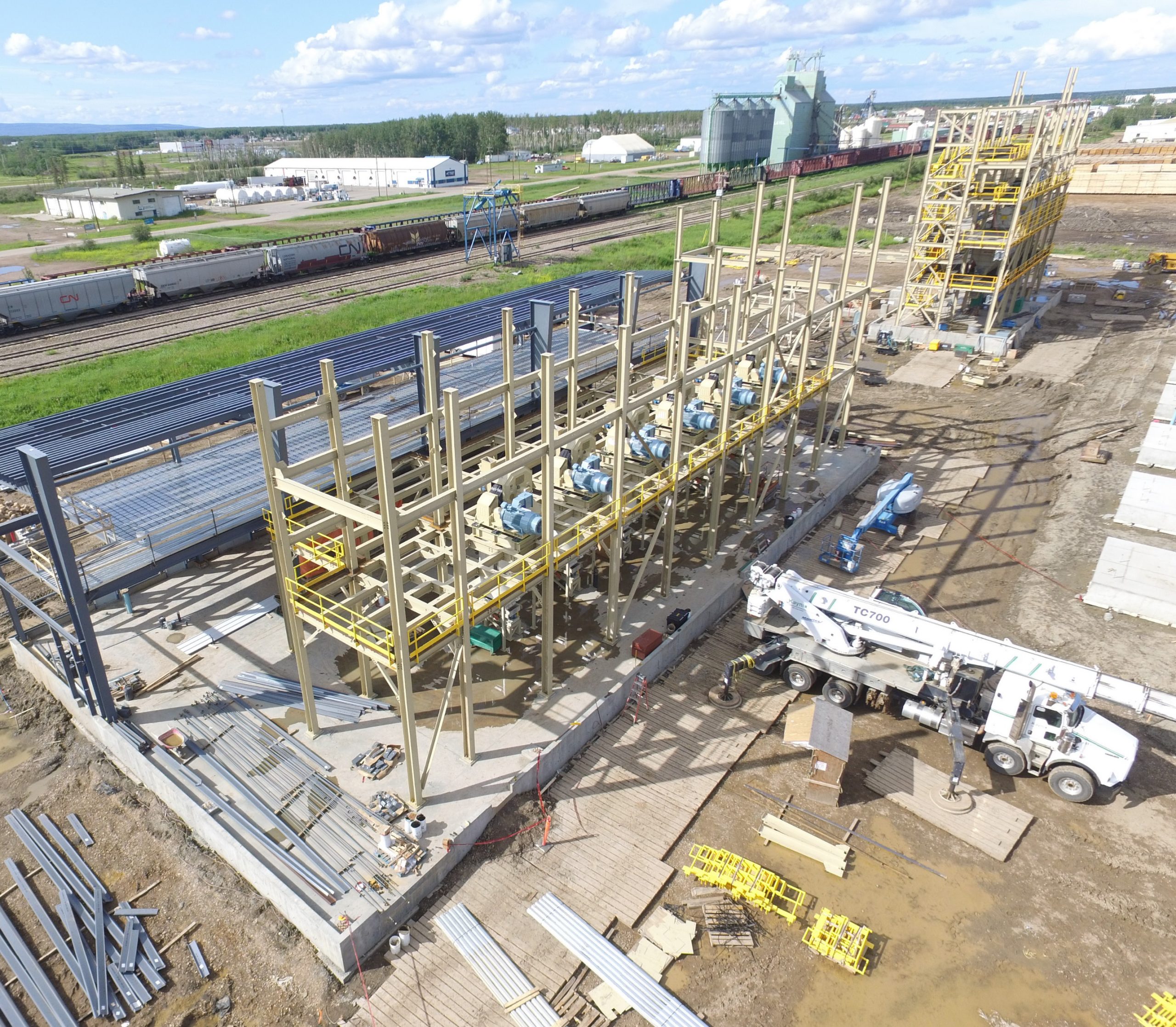
The acquisition positions Drax as the world’s leading sustainable biomass generation and supply business. It received overwhelming support from both sets of shareholders with 95.97% of Pinnacle’s and 99.99% of Drax’s shareholders voting in favour.
It transforms Drax into a truly international business, trading bioenergy from the North America continent to Europe and Asia, and positions the enlarged Group to take advantage of global growth opportunities, with the market for biomass pellets for renewable generation in Europe and Asia expected to grow significantly.
This large and geographically diversified asset base enhances Drax’s sourcing flexibility and security of supply.
The acquisition will increase Drax’s annual operational capacity to 4.9 million tonnes of sustainable biomass pellets from 2022, at 17 plants in locations across Western Canada and the US South – up from 1.6Mt now. Of this increased capacity, 2.9 million will be available for Drax’s self-supply requirements from 2022. It will also give the Group access to four deep water port facilities and three major wood fibre baskets.
By advancing the strategy to increase self-supply and reduce biomass production costs, the acquisition paves the way for the Company’s plans to deliver Bioenergy with Carbon Capture and Storage (BECCS), permanently removing millions of tonnes of carbon dioxide from the atmosphere each year.
By becoming a world leader in BECCS, Drax can deliver on its purpose of enabling a zero carbon, lower cost energy future, and achieve its ambition to become a carbon negative company by 2030. Drax will seek to export its BECCS expertise around the world to support global efforts to address the climate emergency.
Will Gardiner, Chief Executive Officer of Drax, said:
“This is an exciting and important acquisition which positions Drax as the world’s leading sustainable biomass generation and supply business. I am delighted to welcome our new Pinnacle colleagues to the Drax family and look forward to what we can achieve together.

Drax Group CEO Will Gardiner in the control room at Drax Power Station [Click to view/download]
“As well as making Drax an international supplier of sustainable biomass, this deal advances our strategy to increase self-supply, reduce our own biomass production cost and create a long-term future for sustainable bioenergy. We expect to benefit greatly from Pinnacle’s operational and commercial expertise.
“Through this deal we are also advancing our plans to use BECCS to permanently remove millions of tonnes of carbon dioxide from the atmosphere each year and become a carbon negative company by 2030. Negative emissions from BECCS are vital if we are to address the global climate emergency. BECCS will also provide a significant share of the renewable electricity needed in a net zero economy, support green jobs and drive growth in a post-COVID recovery.”
ENDS
Media contacts:
Ali Lewis
Drax Group Head of Media and PR
E: ali.lewis@drax.com
T: +44 (0) 7712 670 888
Editor’s Notes:
Read stock market announcement: Completion of the acquisition of Pinnacle Renewable Energy Inc.
Read blog by Will Gardiner: The world’s leading sustainable biomass generation and supply business
Drax now has ownership interests in a total of ten operational pellet plants, and one in development, in Western Canada and the US South:
| Plant | Location | Status | Commissioning | Nameplate Capacity (Mt) | Pinnacle Ownership (%) |
| Williams Lake | BC, Canada | Operational | 2004 | 0.2 | 100% |
| Houston | BC, Canada | Operational | 2006 | 0.2 | 30% |
| Armstrong | BC, Canada | Operational | 2007 | 0.1 | 100% |
| Meadowbank | BC, Canada | Operational | 2008 | 0.2 | 100% |
| Burns Lake | BC, Canada | Operational | 2011 | 0.4 | 100% |
| Lavington | BC, Canada | Operational | 2015 | 0.3 | 75% |
| Smithers | BC, Canada | Operational | 2018 | 0.1 | 70% |
| Entwistle | Alberta, Canada | Operational | 2018 | 0.4 | 100% |
| Aliceville | Alabama, USA | Operational | 2018 | 0.3 | 70% |
| High Level | Alberta, Canada | Operational | 2020 | 0.2 | 50% |
| Demopolis | Alabama, USA | Development | Est. 2021 | 0.4 | 70% |
| Total | | | | 2.9 | 82% |
These are in addition to the six pellet plants in the US South Drax already owns:
- LaSalle and Morehouse pellet plants in Louisiana,
- Amite in Mississippi
- Three satellite pellet plants in Arkansas which are in development.
As a result of the acquisition Drax now has access to four deep water ports, providing good access to European and Asian markets. The ports are:
- Vancouver, BC, Canada
- Prince Rupert, BC, Canada
- Mobile, Alabama, USA
- Baton Rouge, Louisiana, USA
Drax maintains a rigorous and robust approach to biomass sustainability, as well as the safe operation of its pellet plants.
Pinnacle’s wood pellets are principally sourced from sawdust and other materials left over from existing sawmilling activity, which would otherwise be left to decompose or be burned.
About Drax
Drax Group’s purpose is to enable a zero carbon, lower cost energy future and in 2019 announced a world-leading ambition to be carbon negative by 2030, using Bioenergy with Carbon Capture and Storage (BECCS) technology.
Its 3,400 employees operate across three principal areas of activity – electricity generation, electricity sales to business customers and compressed wood pellet production and supply to third parties.
Power generation:
Drax owns and operates a portfolio of renewable electricity generation assets in England and Scotland. The assets include the UK’s largest power station, based at Selby, North Yorkshire, which supplies five percent of the country’s electricity needs.
Having converted Drax Power Station to use sustainable biomass instead of coal it has become the UK’s biggest renewable power generator and the largest decarbonisation project in Europe. It is also where Drax is piloting the groundbreaking negative emissions technology BECCS within its CCUS (Carbon Capture Utilisation and Storage) Incubation Area.
Its pumped storage, hydro and energy from waste assets in Scotland include Cruachan Power Station – a flexible pumped storage facility within the hollowed-out mountain Ben Cruachan.
Pellet production and supply:
Drax owns and has interests in 17 pellet mills in the US South and Western Canada which have the capacity to manufacture 4.9 million tonnes of compressed wood pellets (biomass) a year. The pellets are produced using materials sourced from sustainably managed working forests and are supplied to third party customers in Europe and Asia for the generation of renewable power.
Drax’s pellet mills supply around 20% of the biomass used at its own power station in North Yorkshire, England to generate flexible, renewable power for the UK’s homes and businesses.
Customers:
Through its two B2B energy supply brands, Haven Power and Opus Energy, Drax supplies energy to 250,000 businesses across Britain.
For more information visit www.drax.com/us





